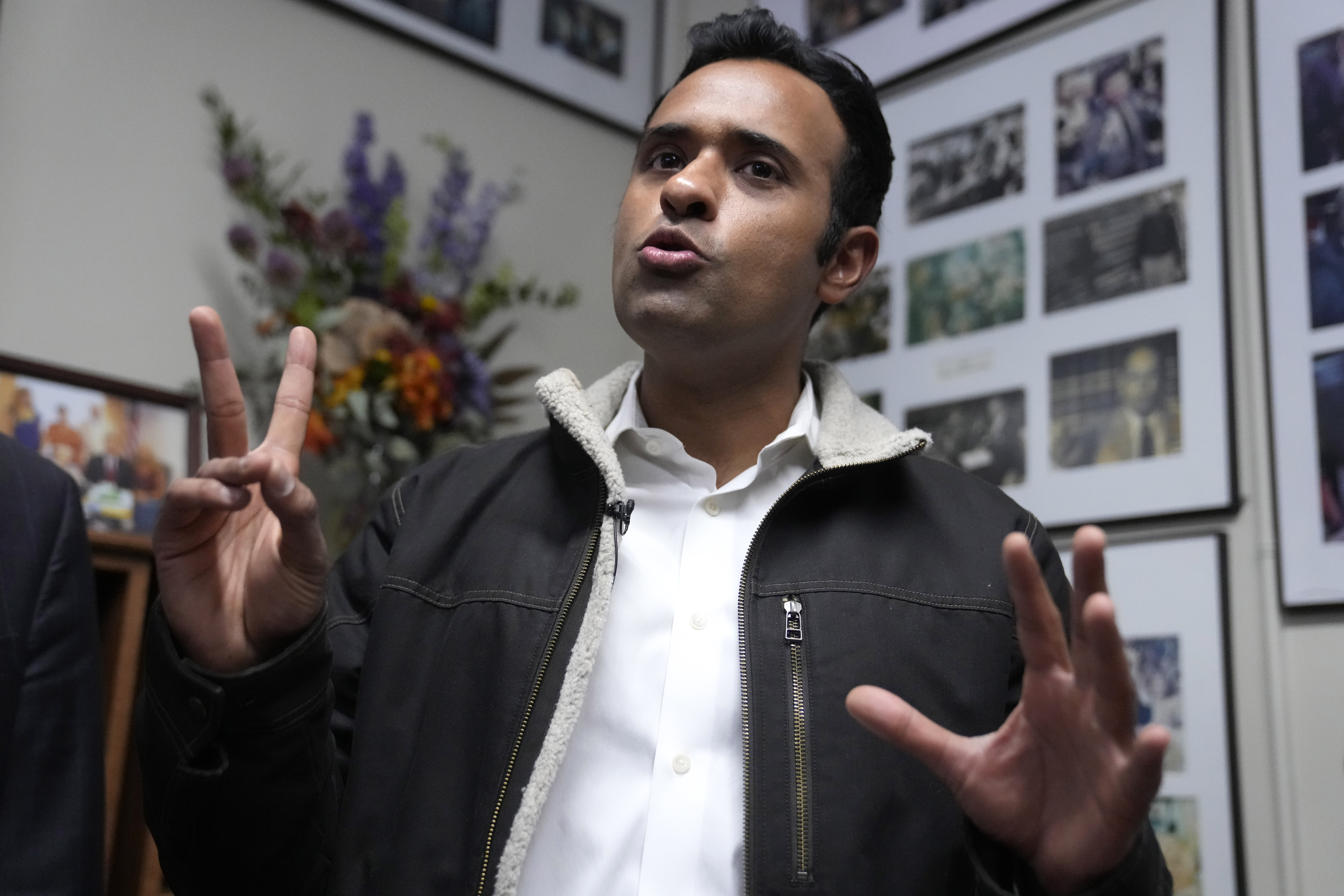Ramaswamy: U.S. pulling out of NATO is ‘reasonable,’ as is ‘reevaluating’ UN membership
His stance means at least two of the top four Republicans vying for the presidency are skeptical of America’s involvement in post-World War II institutions.


One of the better-polling Republican presidential candidates said on Monday that withdrawing the U.S. from NATO was a “reasonable idea” and that he was “reevaluating” whether America should remain a member of the United Nations.
POLITICO asked Vivek Ramaswamy, the entrepreneur polling fourth nationally and in Iowa, about a Rolling Stone article detailing how the GOP frontrunner, former President Donald Trump, was open to taking the U.S. out of the transatlantic military alliance. He answered by supporting the notion, but didn’t commit to following through if he were elected president.
“It’s a reasonable idea that I have considered,” he said in a brief statement.
Ramaswamy didn’t detail, even after questioning, why he was amenable to a NATO withdrawal. Unsolicited, the candidate added that “I am also open to reevaluating U.S. involvement in the UN” without expounding further, even after more queries on the subject.
Still, the statement makes clear that Ramaswamy is mulling a radical shift in U.S. foreign policy, one that would see the United States withdraw from alliances and institutions it helped found after World War II. Ramaswamy’s stance means at least two of the top four Republicans vying for the nomination are skeptical that remaining in such organizations is beneficial for America’s foreign policy goals.
If the U.S. were no longer in NATO, it would lose a commitment from 30 other allies to defend it if attacked. The only time NATO’s Article 5 was invoked was after the terrorist attacks of 9/11. And leaving the United Nations would mean a loss of America’s veto power on the Security Council, possibly giving China and Russia, two of the five nations with that privilege, more influence in the world body.
Ramaswamy is resistant to further entangling the U.S. abroad and has called for a weakening of America’s commitments to Ukraine and Israel, urging lawmakers to vote “no” on President Joe Biden’s $106 billion aid package, which would boost both countries’ defenses. He told POLITICO on Saturday that the U.S. military aid for Israel’s fight against Hamas should be “contingent” on Israel’s having a detailed plan for what comes after a ground invasion of Gaza.
Ramaswamy, however, isn’t looking for a complete removal of the United States from world affairs. He has promoted military strikes on Mexican drug cartels to curb the spread of fentanyl, and has warned other countries, namely China, that if they wade deeper into the Western Hemisphere, they will “have hell to pay.”
His comments on NATO and the United States are likely to earn him more pushback from U.S. foreign policy traditionalists in both parties. Nikki Haley, the former ambassador to the U.N. and a rival for the GOP presidential nomination, has been a staunch Ramaswamy critic, calling him a foreign policy novice partly over his stances on Israel.
Ramaswamy and Haley are two of three candidates to qualify for the next GOP presidential debate in November. The other, Florida Gov. Ron DeSantis, will join them. Trump, who did not show up for the first debates, is unlikely to appear.



